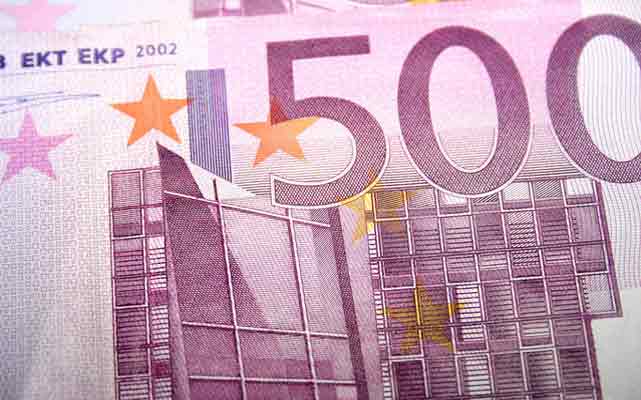Pound to Euro Forecast: GBP Eyes 1.16 as Trade Tensions Weigh on EUR
- Written by
David Woodsmith

The Pound-to-Euro exchange rate (GBP/EUR) has maintained highs at around 1.156 on Wednesday, after the single currency lost further ground in global markets, which has helped underpin the Pound.
The Euro attempted to stabilise during the European trading with GBP/EUR trading around 1.1535.
According to SocGen: "If a short-term pullback develops, the lower limit of an ascending channel near 0.8660/0.8645 could be an important support zone.
This would imply GBP/EUR resistance in the 1.1550 - 1.1570 zone.
ING considers that there has been substantial position adjustment; “it could be seen as the UK having a better deal than the EU when it comes to trade. In reality, however, it was probably all to do with positioning, where opposing fiscal and monetary prospects between the eurozone and the UK had made long EUR/GBP one of the conviction trades this summer.”
Although there was immediate relief that the EU secured a trade deal with the US and avoided a trade war, there have also been notable concerns that the EU will be negatively impacted by the arrangement.
National Australia Bank head of FX research Ray Attrill commented; "It hasn't taken long for markets to conclude that this relatively good news is still, in absolute terms, bad news as far as the near-term implications for euro zone growth are concerned."
He added; "The deal has been roundly condemned by France while others - including German Chancellor Merz - are playing up the negative consequences for exporters, and with that, economic growth."
According to Clemens Fuest, president of the IFO economic research institute; ‘The trade deal is a humiliation for the EU, but it reflects the imbalance of power.”
He added; “The Europeans need to wake up, focus more on economic strength and reduce their military and technological dependence on the US.”
Rabobank noted a newswire report; “According to Bloomberg, Wolfgang Niedermark of the BDI industry federation has wailed that “the EU is accepting painful tariffs. Even a 15% tariff will have immense negative consequences for Germany’s export-oriented industry.”
The bank added; “Prior to Trump’s inauguration, economists were talking about “worst case scenarios” that included horrific outcomes like a 5% universal tariff, and 15% on Chinese goods. After witnessing 145% tariffs on China and Liberation Day “reciprocal tariffs,” it’s easy to shrug off the current developments. But the actual tariff levels still matter.”
There is, therefore, a risk of wider complacency over the impacts on the US and global economy.
Domestically, mortgage approvals increased to 64,200 for June from a revised 63,300 the previous month and above consensus forecasts of 63,000.
Approvals for re-mortgaging increased to the highest level since October 2022.
There was also a surge in net lending to £6.76bn for June from £2.90bn the previous month with a stronger increase in consumer credit growth.
The British Retail Consortium (BRC) reported that shop prices increased 0.7% in the year to July from 0.4% previously.
Food prices increased 4.0% from 3.4% previously.
Mike Watkins, Head of Retailer and Business Insight, NIQ, commented; “Consumers’ household budgets are coming under pressure with the food retailers now seeing price increases above CPI.”
The data should not encourage a faster rate of interest rate cuts by the Bank of England.
STORY LINK Pound to Euro Forecast: GBP Eyes 1.16 as Trade Tensions Weigh on EUR

The Pound-to-Euro exchange rate (GBP/EUR) has maintained highs at around 1.156 on Wednesday, after the single currency lost further ground in global markets, which has helped underpin the Pound.
The Euro attempted to stabilise during the European trading with GBP/EUR trading around 1.1535.
According to SocGen: "If a short-term pullback develops, the lower limit of an ascending channel near 0.8660/0.8645 could be an important support zone.
This would imply GBP/EUR resistance in the 1.1550 - 1.1570 zone.
ING considers that there has been substantial position adjustment; “it could be seen as the UK having a better deal than the EU when it comes to trade. In reality, however, it was probably all to do with positioning, where opposing fiscal and monetary prospects between the eurozone and the UK had made long EUR/GBP one of the conviction trades this summer.”
Although there was immediate relief that the EU secured a trade deal with the US and avoided a trade war, there have also been notable concerns that the EU will be negatively impacted by the arrangement.
National Australia Bank head of FX research Ray Attrill commented; "It hasn't taken long for markets to conclude that this relatively good news is still, in absolute terms, bad news as far as the near-term implications for euro zone growth are concerned."
Save on Your GBP/EUR Transfer
Get better rates and lower fees on your next international money transfer. Compare TorFX with top UK banks in seconds and see how much you could save.
According to Clemens Fuest, president of the IFO economic research institute; ‘The trade deal is a humiliation for the EU, but it reflects the imbalance of power.”
He added; “The Europeans need to wake up, focus more on economic strength and reduce their military and technological dependence on the US.”
Rabobank noted a newswire report; “According to Bloomberg, Wolfgang Niedermark of the BDI industry federation has wailed that “the EU is accepting painful tariffs. Even a 15% tariff will have immense negative consequences for Germany’s export-oriented industry.”
The bank added; “Prior to Trump’s inauguration, economists were talking about “worst case scenarios” that included horrific outcomes like a 5% universal tariff, and 15% on Chinese goods. After witnessing 145% tariffs on China and Liberation Day “reciprocal tariffs,” it’s easy to shrug off the current developments. But the actual tariff levels still matter.”
There is, therefore, a risk of wider complacency over the impacts on the US and global economy.
Domestically, mortgage approvals increased to 64,200 for June from a revised 63,300 the previous month and above consensus forecasts of 63,000.
Approvals for re-mortgaging increased to the highest level since October 2022.
There was also a surge in net lending to £6.76bn for June from £2.90bn the previous month with a stronger increase in consumer credit growth.
The British Retail Consortium (BRC) reported that shop prices increased 0.7% in the year to July from 0.4% previously.
Food prices increased 4.0% from 3.4% previously.
Mike Watkins, Head of Retailer and Business Insight, NIQ, commented; “Consumers’ household budgets are coming under pressure with the food retailers now seeing price increases above CPI.”
The data should not encourage a faster rate of interest rate cuts by the Bank of England.
International Money Transfer? Ask our resident FX expert a money transfer question or try John's new, free, no-obligation personal service! ,where he helps every step of the way, ensuring you get the best exchange rates on your currency requirements.
TAGS: Pound Euro Forecasts
Comments are currrently disabled
Related Stories:
- Pound-to-Euro Rate Flat after Mixed German Data - February 25, 2026
- British Pound to Euro Forecast: Bailey’s Caution Lifts GBP Above 1.1450 - February 25, 2026
- Pound-to-Euro Volatile - February 24, 2026
- British Pound to Euro Forecast: BoE Testimony, By-Election Risks Ahead - February 24, 2026
- Pound to Euro Firms - February 23, 2026
- British Pound to Euro Forecast: GBP Supported as UK Retail Sales Surge - February 20, 2026
- Pound-Euro Flat - February 19, 2026
- British Pound to Euro Forecast: Inflation Falls, Yet GBP Vulnerable - February 19, 2026
- Pound to Euro Rebounds - February 18, 2026
Latest News:
- Pound-to-Euro Rate Flat after Mixed German Data - February 25, 2026
- British Pound to Euro Forecast: Bailey’s Caution Lifts GBP Above 1.1450 - February 25, 2026
- Pound Sterling to Dollar Forecast: GBP Above 1.35 on US Trade Chaos - February 25, 2026
- Pound Sterling Capped after Dovish Bailey Remarks - February 24, 2026
- Pound-to-Euro Volatile - February 24, 2026
- British Pound to Euro Forecast: BoE Testimony, By-Election Risks Ahead - February 24, 2026
- Pound to Dollar Forecast: GBP Reclaims 1.35 as Tariff Chaos Hits USD - February 24, 2026
- Pound to Euro Firms - February 23, 2026
- GBP/USD Forecast: Pound Sterling Firm but Political Risks Linger - February 23, 2026
- Pound to Euro Forecast: By-Election Jitters Put GBP on Defensive - February 23, 2026









